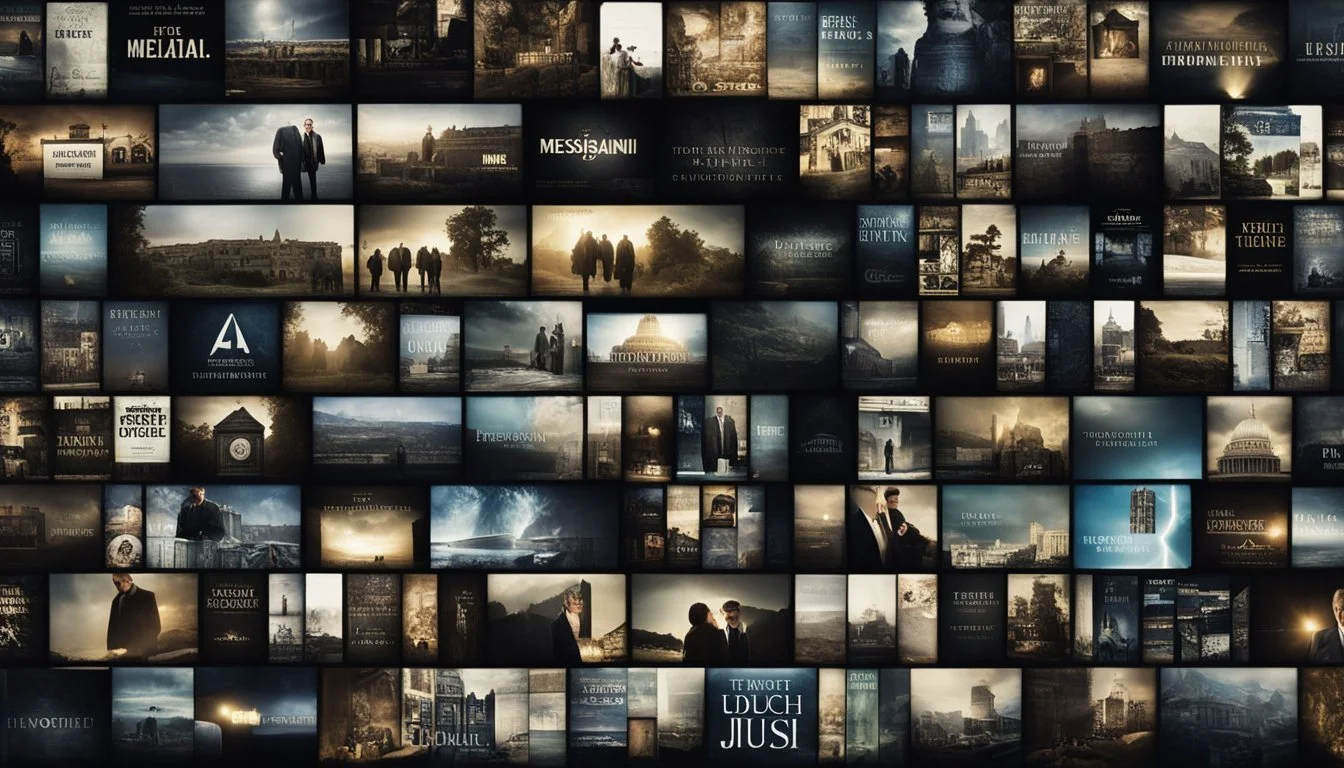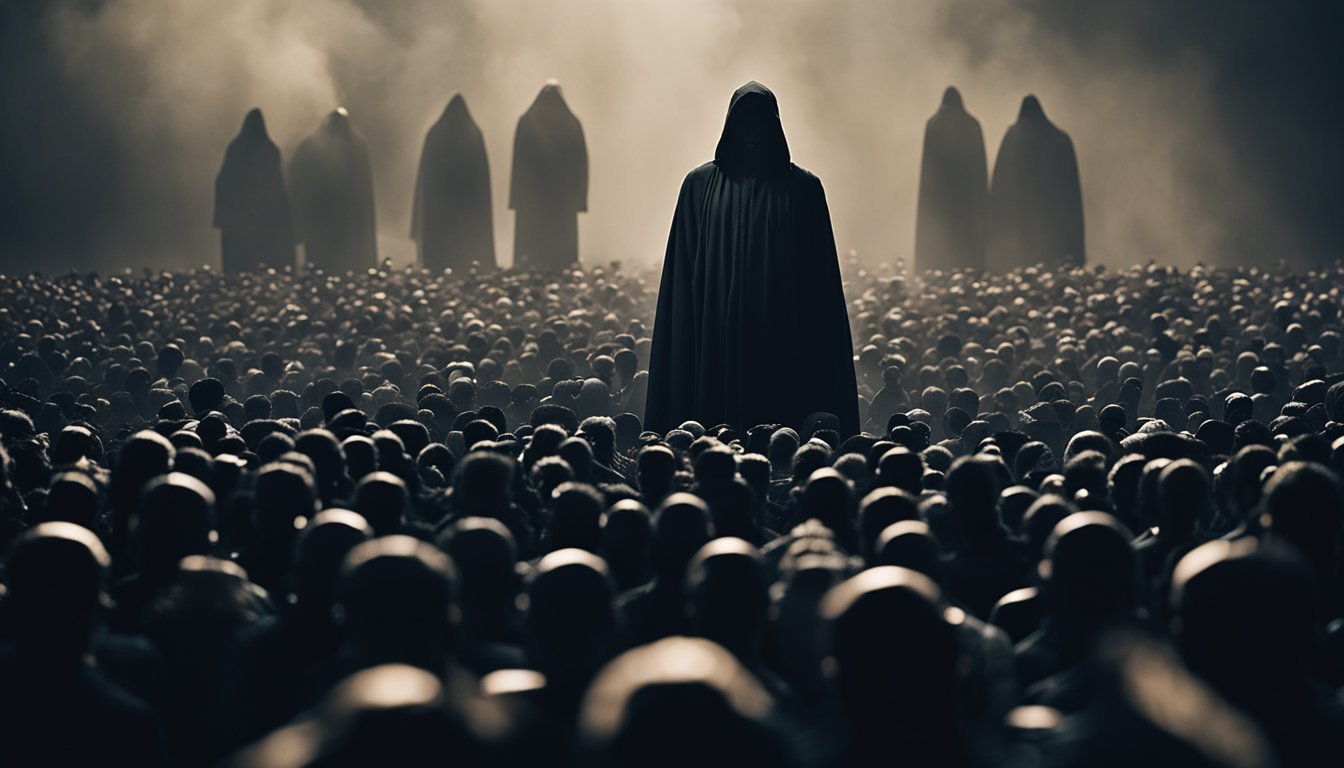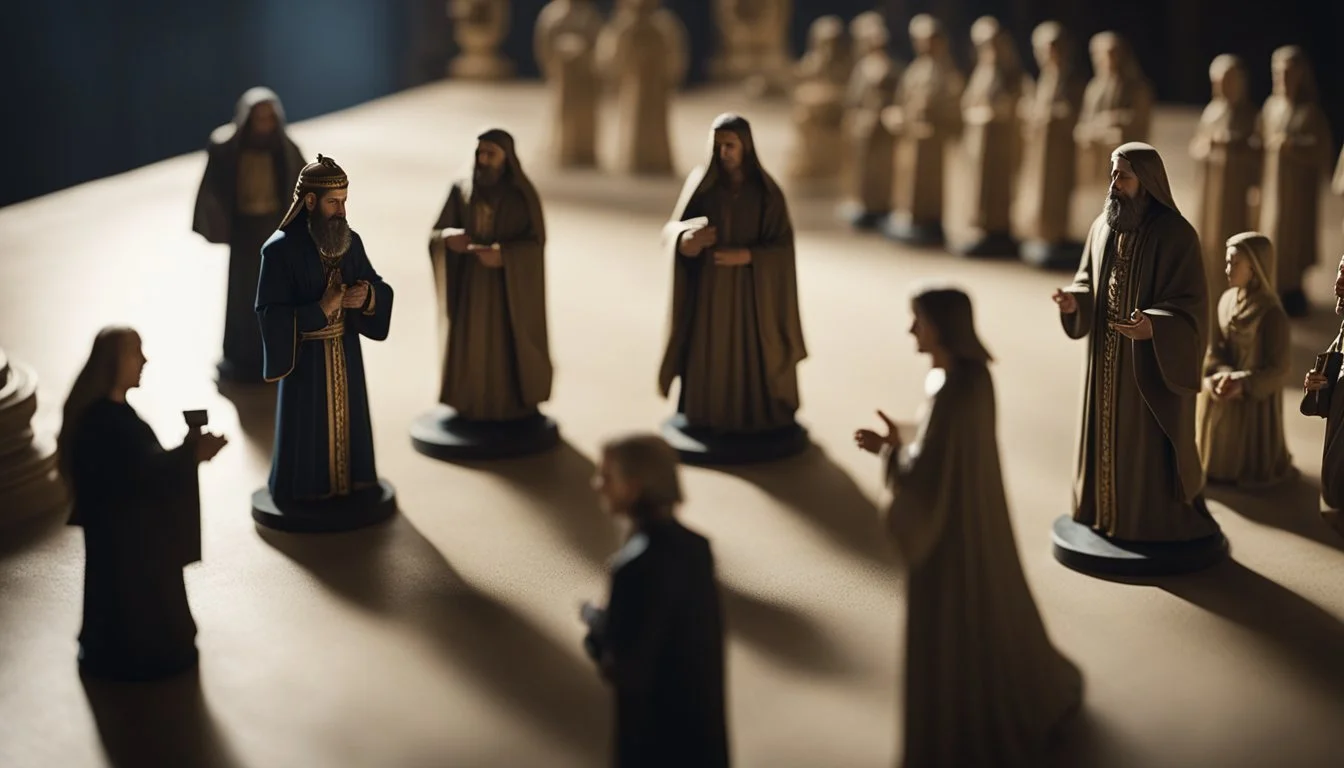7 True Crime Documentaries About Messianic Judaism
Riveting Tales of Faith and Mystery
The fascination with true crime documentaries has surged, captivating audiences with complex stories of real-life enigmas. An intriguing subset of this genre focuses on Messianic Judaism, a movement that merges elements of Judaism and Christianity. Documentaries in this niche dive into the unique cultural and religious landscape, often highlighting the challenges and controversies faced by its followers.
These documentaries provide an insightful look into the lives of individuals navigating the intersections of faith and identity, pushing viewers to question their own understanding of religious dynamics. They often expose underlying tensions and multifaceted narratives that keep audiences engaged and informed. As you explore these films, prepare to be immersed in a world where belief systems collide and personal stories unfold.
1) The Believers (2023)
The documentary "The Believers" (2023) delves into the world of Messianic Judaism through the eyes of several adherents within the community. This film examines how individuals who identify as both Jewish and followers of Jesus navigate their unique religious identity.
The narrative focuses on personal stories and experiences, highlighting the challenges and joys faced by Messianic Jews. It provides an in-depth look at their practices, beliefs, and the broader reception of Messianic Judaism in both Jewish and Christian circles.
Interviews with key figures, including rabbis and community leaders, offer a comprehensive understanding of the movement's origins and growth. The documentary also addresses common misconceptions and controversies surrounding Messianic Judaism.
"The Believers" presents a balanced perspective, allowing viewers to form their own opinions about this complex and often misunderstood community. The film uses archival footage, contemporary interviews, and personal testimonies to bring the subject to life.
For more information on "The Believers," please visit IMDb.
2) Messiah on Trial
"Messiah on Trial" (2023) shines a light on a high-profile case involving a man who claims to be the messiah. His followers believe in his divine nature, while skeptics question his authenticity.
The documentary delves into the legal and social ramifications of this claim. The narrative covers the perspectives of both supporters and detractors.
The film explores the challenges faced by law enforcement, who are caught between protecting public order and respecting religious beliefs. It also captures the courtroom drama as experts debate the theological and psychological aspects of the man's messianic claim.
Viewers are offered insights into the tension between religious freedom and societal norms. The film features interviews with legal experts, religious scholars, and psychologists, providing a multi-faceted view.
For more information, visit IMDb.
3) Prophet's Prey (2015)
"Prophet's Prey" is a 2015 documentary directed by Amy J. Berg.
The film explores the disturbing world of the Fundamentalist Church of Jesus Christ of Latter-Day Saints (FLDS) and its leader, Warren Jeffs. Jeffs claimed to have a divine connection, using this claim to exert control over his followers.
The documentary delves into Jeffs' rise to power. Once he became the Prophet of FLDS, he expanded practices of polygamy and underage marriage.
"Prophet's Prey" reveals how Jeffs exploited his position. He not only married dozens of underage girls but also siphoned off the community's financial resources.
The film is based on a book by Sam Brower, highlighting the shocking details of Jeffs' actions and his eventual imprisonment.
Viewers get an in-depth look at the impact of Jeffs' actions on his followers, examining both personal stories and broader social implications.
4) Saints, Sinners, and Scoundrels
Exploring the intersection of spirituality and crime, "Saints, Sinners, and Scoundrels" delves into cases where devout Messianic Jews found themselves embroiled in criminal activities.
This documentary uncovers the complex lives of individuals who pledged themselves to a path of righteousness but fell into ethical and legal dilemmas.
Key cases include high-profile scandals involving financial fraud, religious betrayal, and moral conflicts, providing a gripping look at the duality of faith and fallibility.
The film further examines the communal impacts and the psychological struggles faced by those living double lives within Messianic Judaism.
5) Sacred Secrets
The documentary "Sacred Secrets" (2018) explores the intricate and often controversial aspects of Messianic Judaism.
The film deeply examines the life and teachings of prominent figures within the movement. It also takes a close look at their followers' beliefs and practices.
The narrative is interwoven with interviews from scholars, religious authorities, and ordinary adherents. They discuss the historical and theological roots of Messianic Judaism.
The documentary sheds light on the tensions between Messianic Jews and the broader Jewish community. The conflicts regarding identity and religious legitimacy are carefully presented.
A significant portion of "Sacred Secrets" delves into the story of Rabbi Yitzhak Kaduri, a pivotal and enigmatic figure. His claims and their impact on the Messianic community are meticulously analyzed.
The film provides a neutral and informed perspective on this complex subject, without sensationalism. This makes it a valuable resource for anyone interested in understanding Messianic Judaism's place in contemporary religious discourse.
For more information, visit IMDb.
6) Faith Under Fire (2020)
"Faith Under Fire" is a film that intersects themes of faith and crisis through the story of Fireman Tom Hatcher. Directed by Joel Paul Reisig, it features a cast including Nick Vlassopoulos, Tenley Kellogg, Dean Cain, and Kevin Sorbo.
Tom Hatcher is depicted as a man struggling with immense personal loss. Having lost his wife to cancer, he now faces a similar battle with his young daughter, Tiffany.
The movie explores Hatcher's internal conflict and the role of faith during his darkest hours. A particular incident where he punches a pastor and lands in jail reveals his frustration with a seemingly absent God.
This movie provides a unique lens on faith amid trials, portraying the protagonist’s journey from despair to a reinvigorated sense of purpose and belief. It offers insight into how extreme personal challenges can impact one's spiritual journey.
The raw portrayal of Tom Hatcher's pain and his search for solace make it a poignant study for audiences interested in examining faith under extraordinary pressure.
7) A Shocking Truth
The documentary "The Rabbi Who Found Messiah" (2013) addresses the compelling story of Rabbi Yitzhak Kaduri. Rabbi Kaduri was a prominent Kabbalist who, according to the film, suggested he had met the Messiah.
This documentary explores the controversial claim that Kaduri identified the Messiah as Jesus, a radical statement within Jewish circles.
Interviewees include Messianic Rabbi Jonathan Cahn and author Carl Gallups. They discuss the profound implications of Kaduri's alleged revelation and its impact on Jewish and Messianic communities.
The film raises questions about faith, tradition, and religious identity, making it a thought-provoking watch for those interested in Messianic Judaism and its complexities.
For more information, visit the IMDb page for The Rabbi Who Found Messiah (2013).
Understanding Messianic Judaism
Messianic Judaism merges Jewish traditions with the belief in Yeshua (Jesus) as the Messiah. This blend of faith and culture creates a unique religious movement with deep historical roots and distinct beliefs.
Foundations and Beliefs
Messianic Judaism is centered around the belief that Yeshua is the prophesied Jewish Messiah. Messianic Jews maintain traditional Jewish customs while accepting the New Testament's teachings. Key aspects include observing Jewish holidays such as Passover, Hanukkah, and the Sabbath.
They emphasize both the Torah and the New Testament. Synagogue services often resemble traditional Jewish liturgies but include readings from the New Testament. Practices like Bar/Bat Mitzvahs and the observance of kosher dietary laws are also prevalent.
Historical Context
The roots of Messianic Judaism can be traced back to the first century CE. Early Jewish followers of Jesus blended Jewish customs with the new teachings about Jesus as the Messiah. Over centuries, this movement evolved, facing various phases of persecution and acceptance.
In modern times, Messianic Judaism has gained more structure, especially with organizations and new versions of the Bible like the Messianic Jewish Family Bible. The movement has a significant presence in Israel and among Jewish communities worldwide, illustrating the enduring nature of this faith tradition.
The Intersection of True Crime and Messianic Judaism
True crime documentaries exploring Messianic Judaism often delve into complex cases and the societal impacts on this unique religious movement. These stories reveal much about the internal and external challenges faced by Messianic Jewish communities.
Prominent Cases
Several true crime documentaries have covered impactful cases within Messianic Judaism. A notable example is "The Jerusalem Syndrome", which examines individuals who believe they are modern-day biblical figures. This documentary highlights those with Messianic tendencies and their interactions with the law.
Another influential case is "The Rabbi Who Went Rogue", detailing the fraudulent activities of a self-proclaimed Messianic rabbi. His deception affected both his followers and sparked broader discussions about the credentials of religious leaders.
Both documentaries shed light on the potential for individuals to exploit religious beliefs for personal gain, leading to legal consequences and community disruption.
Societal Impacts
The intersection of true crime and Messianic Judaism also highlights broader societal impacts. For instance, the increased media attention on criminal cases related to Messianic Jews can influence public perception. This scrutiny sometimes results in stigmatization or misunderstanding of the community.
Moreover, these documentaries often reveal the struggles of Messianic Jews in maintaining their identity while facing external prejudice. Legal cases and sensational stories can overshadow genuine efforts to integrate into the wider Jewish world.
True crime narratives thus contribute to the dialogue on religious identity, societal acceptance, and the balance between faith and legality within Messianic Judaism. These documentaries not only tell individual stories but also reflect broader themes relevant to both religious studies and criminal justice.








